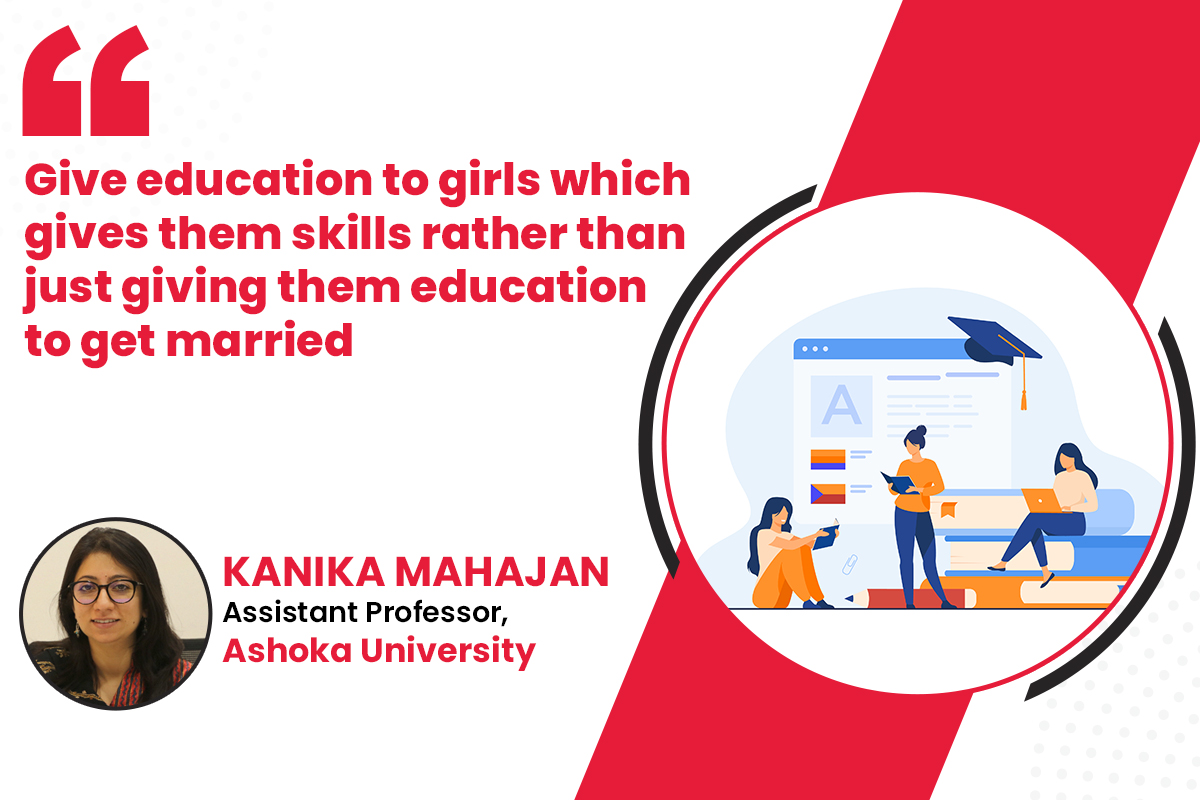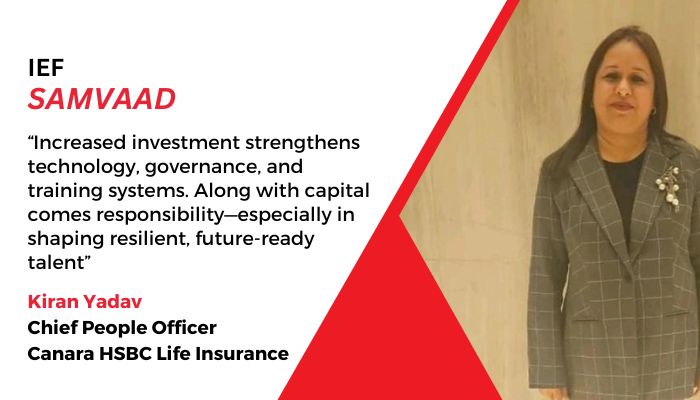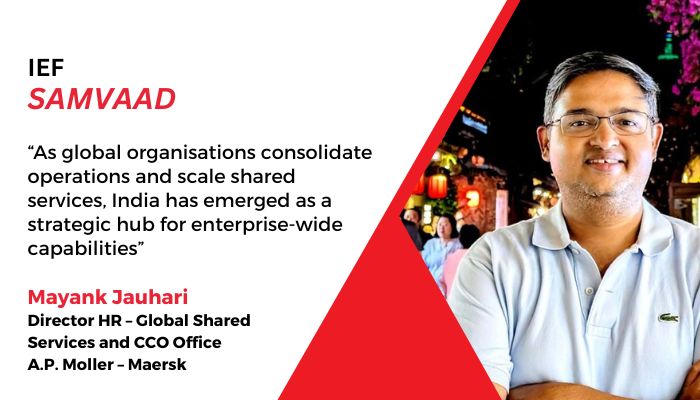Kanika Mahajan, an Assistant Professor at Ashoka University, speaks to India Employer Forum about the issues around women’s falling unemployment rate, the factors which have contributed to this decline, and the reason behind women’s stagnation.
Q. Tell us something about yourself.
I did my undergraduate studies from St Stephen’s College in the field of Economics. I then went on to do my masters in Economics JNU, Delhi. After my masters, I actually did a brief stint in the corporate world. I worked with McKinsey in their marketing analytics division. However, I realized that I enjoy being my boss and want to have the freedom to ideate and think and that’s when I decided to pursue a PhD from Indian Statistical Institute in the field of quantitative economics. Largely, my work has been in the field of labor and development economics with a focus on gender. So far, I’ve looked at issues around women’s unequal pay, the falling employment in the rural areas over time, the factors which have contributed to this decline, both the supply and the demand side, the reasons behind women’s stagnation. Over the last 40 years, women’s labor force participation in India has not increased. I’m currently a faculty at Ashoka University.
Q. How does society and culture impact women’s careers in India?
Two ways in which society and culture across countries affects women’s labor force participation. The world labor force participation rate of women is lower in the region of Asia, but specifically in the Middle East as well as in countries like India, Pakistan and Bangladesh. Things have been improving and there are things like gender norms, but there are constraints that women face in terms of coming out to the workplace within their homes that plays a very important role. E.g. Muslim women are less likely to work as compared to others. Amongst the Hindus, the higher cast women are less likely to work than the lower caste women. So, gender norms have been shown to play a very important role in the supply side which inhibit or increase women’s likelihood to be a part of the labor force. It is a well established fact in literature and what people are now trying to do. How do you influence these gender norms? The second thing which is quite related to gender norms is the role of stereotypes. For instance, in a country like Thailand you frequently find women who deliver at your doorstep; whereas women in India don’t indulge in professions like that. You find more women taking up nursing as an occupation. So stereotyping of occupations also prevents the fluidity that men and women both should have.
Q. How can gender bias, harassment and unequal pay be addressed for women in India?
There is a role played by both households as well as employers because the average perception of the employer is also based on cultural background. This is what we refer to as statistical discrimination in Economics. You may see that women are less likely to do certain kinds of jobs or maybe constrained by home factors and then you try to generalize that maybe all women are the same because average women are like that and that’s where the problem starts coming in. Even women who are professionals and who are serious about their careers are looked down upon with the kind of doubt by employers where they feel that maybe the woman has skills but maybe the household or other responsibilities will dominate at some point of time. So they make projections into the future.
Sometimes when we interview women, they also say that their interviewing experiences are appalling. They’re not very happy with the kind of questions which are asked during the interview and it really puts them off when they’re asked questions around their marital status or if they have children, when these questions are not asked to men. There is a need to change certain ways of recruitment. Also, households need to take women professionally. It’s only when both households and employers will treat women as professionals that we’ll be able to finally see a change.
These are just treated as boxes which need to be taken off at times rather than a concerted effort where both male and female employees take these training seriously and take this aspect of work seriously because it has been shown that harassment faced by anyone, even by men at workplaces that’s sexual, it reduces the worker’s productivity, and no employer would want that to go down, since it might affect their bottom line. Employers need to realize the overall value, which is just being in a safe environment to work which affects the overall productivity of the public.
Lastly, the question around unequal pay. Now in india, we have regulations which prohibit discrimination but we know that none of these regulations really work. In India, an average woman earns 30% lower than men, as per data. If you were to look at the factors which contribute to this gender wage gap, one of the major factors is that men and women end up working in different occupations, that ends up contributing to about 50% to this gender wage gap. Also, there are different kinds of contracts that men and women enter into with their employers. For instance, women prefer more flexible contracts. Men are okay with a job that probably requires more travel. There is also discrimination seen in the negotiation skills of a woman which makes her get lower salary as compared to her male counterparts.
Q. What are the key steps to improve gender inclusivity and women’s participation in the workforce?
I think this is what even the most developed countries are dealing with, not just India, when it comes to women not being up there in the higher management positions despite being there and at the lower bottom. Some countries, for instance, have dealt with it by having voters on corporate boards to at least allow women to have a say. People don’t like quotas, but at the same time, when the society is not able to move forward on its own or when you don’t see things improving on their own then regulations need to come in somewhere. In terms of regulatory aspects, one way to deal with it may be quotas where to begin with, you allow women to have more representation. In fact this has actually worked at the lower levels of Panchayati Raj in India, where women have had 33% reservations since the 1990s.
Now, if you were to ask me what can organizations do on their own in terms of trying to increase women’s representation? Today, certain organizations have diversity officers who are trying to improve the diversity and inclusion in their organizations. To have more women at senior level, you need to give them more space through mentorship or through other channels to be able to rise up within the organization; you just have to do it more proactively.
What is important is to break stereotypes and give education to girls which gives them skills rather than just giving them education to get them married. We need households who value women’s work and employers who value it more to come together to be able to ensure that there is an increased representation of women.
About Kanika Mahajan
Kanika Mahajan is an Assistant Professor of Economics at Ashoka University. Her primary research includes studying labor markets with a focus on gender issues. Currently, she is working on a range of issues in the Indian labor market including changing demand and supply of skills, stagnation of women’s employment in urban India and decline in female employment in rural areas – exploring the structural linkages between female employment and agriculture technology.






